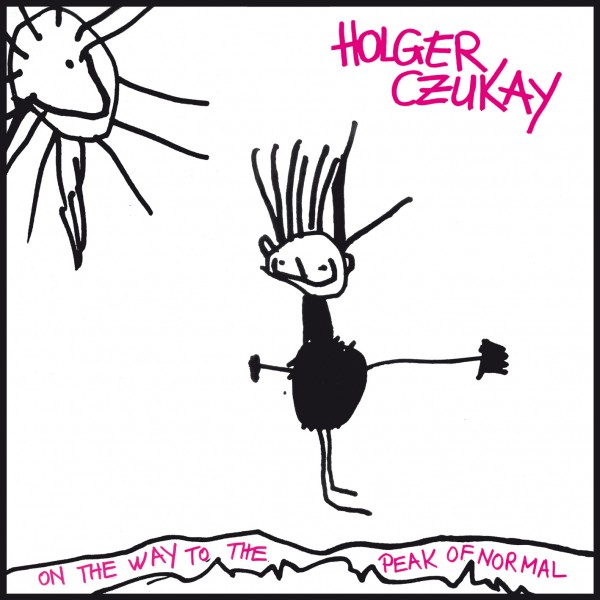When ex-Can bassist Holger Czukay recorded the Les Vampyrettes EP in 1980, with acclaimed producer and occasional musical collaborator Conny Plank, Krautrock was defunct and Neue Deutsche Welle in its earliest, exciting and germinating phase. Holger Czukay, however, was arguably at the peak of his abnormal powers at this time, having just released the album Movies, whose sound collages and adventures in shortwave radio brilliantly anticipated the move towards sampling later in the 1980s. These vinyl reissues, however, aren’t mere historical artifacts, stepping stones towards subsequent developments. They bounce with the same ingenious, cubic strangeness out of the speakers today as they did over 30 years ago.
That Czukay and Plank were cleverly negotiating a space between 70s experimentalism and 80s post-punk is evident on Les Vampyrettes’ opener ‘Biomutaten’, whose ticking, reverberating bassline reminds of 23 Skidoo’s ‘Porno Bass’, released shortly after this. Czukay says that he "intended a new series of special singles called ‘horror with comfort," ‘Biomutanten’ is conceived as evoking a scenario where "a car driver got a motor problem next to a slimy garbage place from where he got attacked by yet unknown monsters."
Yet with its clanking bicycle chain effects and shadowy field of sound events, it and ‘Menetekel’ transcend such any potential horrorshow banality. As a producer, Plank was so vivid in his expert, improvised studio realisations that he singlehandedly added a sheen of timelessness to experimental German music in the 1970s and 80s. He does so here also. As for Czukay, he adds a Surrealist sensibility in the way he places elements – like Dali, recurring motifs (that French Horn) shimmer weightlessly in an ever-familiar, ever unfamiliar, vivid yet obscure dreamscape.
‘Witches’ Multiplication Table’ (with Czukay on ‘Cemetery synthesizer violin’) also featured on Czukay’s 1981 album On The Way To The Peak Of Normal, which he recorded with the new German group S.Y.P.H. Three of its tracks are reissued here on vinyl; the title track, plus ‘Ode To Perfume’ and ‘Fragrance’. As the titles suggest, it is as if Czukay were somehow looking to break the bounds of the senses in music, create a somehow olfactory experience.
His bass buzzes aromatically on ‘Fragrance’, as spritely elements luxuriate and mutate, vanish and reappear in the mix, an on-the-spot new vocabulary for music-making which still feels untouched and barely spoken today. ‘Ode To Perfume’, meanwhile, with its opening volley of ‘sampled’ vocals tumbling into an enigmatic void, feels like the sort of thing Can might have recorded had they not become so jaded and disheartened in the late 70s prior to their demise – Jaki Liebezeit plays on these tracks as if to underpin the point.


